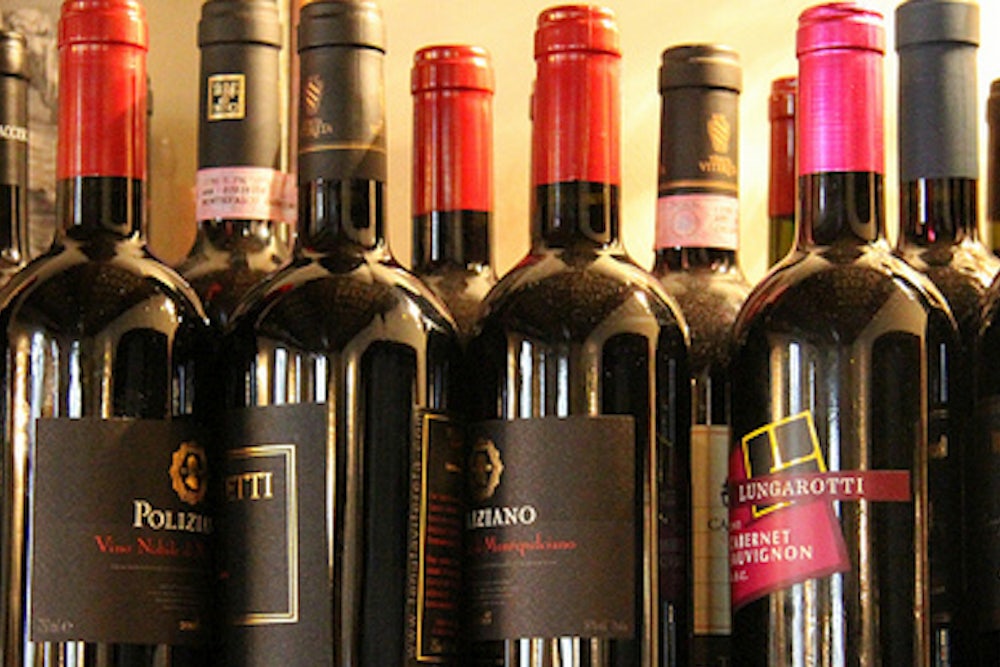It’s been a confusing couple of weeks for lovers of red wine and longevity. On March 8, Science published a paper demonstrating the mechanism by which certain molecules activate a family of proteins called sirtuins, which are thought to be responsible for some of the benefits of caloric restriction. (Those would include improved metabolism, resistance to cancer, and possibly increased longevity.)
Since one of those molecules was resveratrol, a compound found in red wine, headline writers across the globe freaked out. “ ‘Red Wine Pill’ Like Drinking 100 Glasses a Day Could Cure Major Diseases,” blared Fox News. Even Pravda weighed in, with “Red Wine Pill Could Extend Human Life Expectancy to 150 Years.”
Then, last Tuesday, GlaxoSmithKline suddenly announced that it was shutting down its Sirtris division, the Boston-based company that was actually supposed to be making the “red wine pills,” and which GSK had bought for $720 million just five years ago. Wait, what?
The announcement marked a new, confusing phase in the long red-wine-pill saga, which kicked off with a front-page story in the New York Times on November 2, 2006. As the Times reported, Harvard researchers led by David Sinclair had found that resveratrol extended the lifespans of obese laboratory mice; that is, the mice pigged out on high-fat food, but their health did not seem to suffer. Thanks to the resveratrol, they lived just as long as normal mice. If anything, they did better: In videos, the chubby, resveratrol-treated mice jogged away happily on treadmills.
If ever there was a drug tailor-made for overweight Americans, this seemed to be it. Six months later, Sirtris—the company Sinclair cofounded to develop resveratrol-based drugs—had its IPO. Eleven months after that, in April 2008, GSK bought Sirtris outright for $720 million, or nearly double its stock-market valuation. Five years later, contra the headlines, there are still no red-wine longevity pills on the horizon. What happened?
Resveratrol itself is amazing stuff. It’s produced in the skins of grapes, late in their maturation, as a kind of natural antifungal agent. In 2003, Sinclair had discovered that it seemed to activate a longevity-promoting gene in yeast called SIR2. Similar genes are present in nearly all animals, including humans; in mammals, they’re called sirtuins, and they appear to be activated by caloric restriction. Resveratrol seemed to offer an easier, starvation-free route to sirtuin activation, and Sinclair and others then found that the stuff had similar effects on nematode worms, mice, and even fish. In a 2008 study, Sinclair even found that resveratrol helped turn normal mice into super-athletes with extraordinary endurance. (Paging Lance Armstrong…)
Beyond that, resveratrol also seemed to combat certain kinds of cancers, and it is a powerful antioxidant. It also has strong cardioprotective effects, and was thought to be responsible for the “French paradox,” the mysterious French ability to remain (relatively) healthy despite pigging out on Camembert and confit de canard. And it has been shown to fight diabetes, inflammation, and even neurological disorders.
As a pharmaceutical, though, resveratrol has issues. Sinclair calls it “a dirty drug,” meaning it has too many targets in the cell. But that may be moot, because it seems to have extremely low “bioavailability” in humans. (Translation: Most of it exits via your bladder.) That doesn’t stop people from spending $30 million a year on resveratrol supplements, including Sinclair himself (as he told the Times in 2006). But relatively few human studies have been done on resveratrol, and the results are modestly positive, but far from overwhelming, particularly in healthy adults.
Finally, and fatally, as a natural compound, resveratrol itself cannot be patented and sold by a pharmaceutical company. It was Sirtris’s job to try to make new, improved, and potentially profitable versions of resveratrol, as well as entirely new compounds that would target the sirtuins. The company launched several clinical trials of possible sirtuin-activating drugs. But then, one by one, those trials were halted, at least two of them due to unexpected side effects. That leaves only one Sirtris compound, SRT2104, still under active study, for psoriasis and ulcerative colitis.
In the labs, as well, the sirtuin theory of aging was taking heavy fire. In 2011, another group published a paper in Nature that challenged Sinclair’s research directly: His results, it was claimed, were an artifact of the way he did his experiments. The Science paper, published earlier this month, was Sinclair’s triumphant rebuttal, outlining in precise detail how resveratrol and friends actually work on the sirtuin pathway. Just four days later, GSK pulled the plug. A GSK spokeswoman says the company will continue to work on sirtuin activators, but says that aside from SRT2104, there are none in the pipeline. Also, she adds, “they don’t have anything to do with red wine.”
Says Sinclair, who is still a scientific adviser to GSK: “We know the science is real; the problem now is to push it over the goal line. If they don’t end up as drugs in our lifetime, it's not the fault of scientists, and more of a business decision.”
Which is too bad, but at least red wine itself is still good for you. And until that longevity pill comes along, it’s all we’ve got. Just be sure you use a proper dose: In at least two major studies of wine and health, the greatest benefits were seen in people who consumed between three and five glasses of the red stuff.
Per day.
